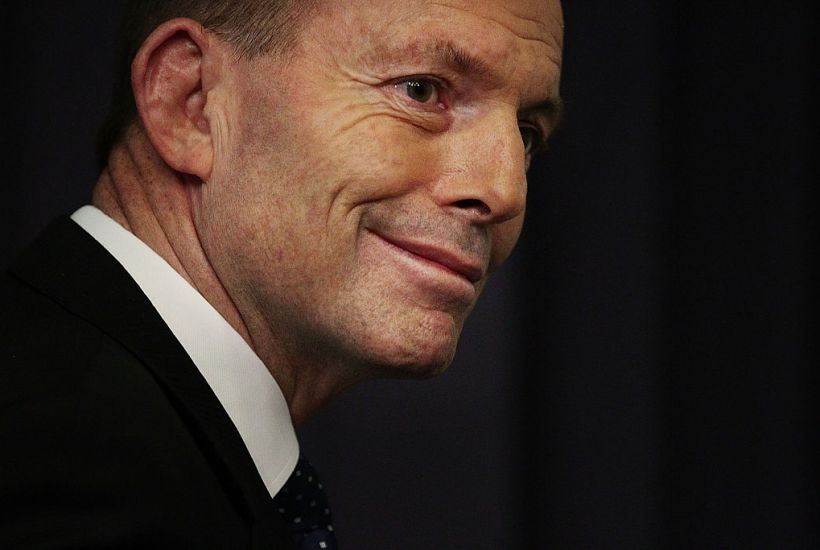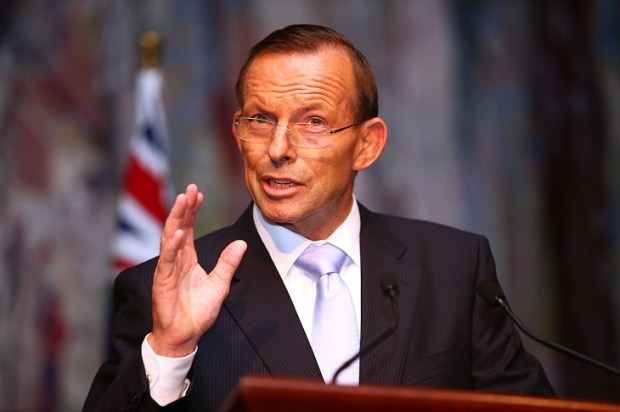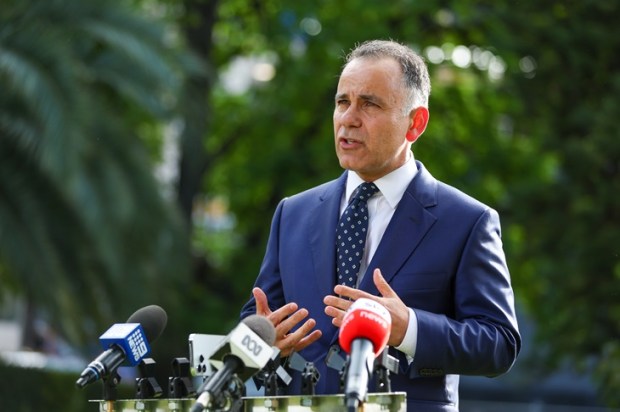Whatever one thinks of the reported appointment by Boris Johnson of Tony Abbott as a Co-President of the Board of Trade with International Trade Secretary Liz Truss, it is certainly one in the eye of the diminishing band of diehard Remainers.
Abbott’s putative role was greeted with disbelief and even derision among Australia’s Left-leaning media elite who have little love for Abbott, just has Abbott have no love for them. That has been echoed by the likes of Labour’s international trade secretary, Emily Thornberry, who has not hesitated to give the former Australian PM a very undiplomatic and uncharitable, even vicious, character assessment in slamming the appointment.
Certainly, the Johnson has caught everyone by surprise by bringing Abbott, as a former “colonial”, into the heart of Whitehall. Perhaps it was one of Dominic Cummings’s wheezes to put the wind up the mandarins and the British trade establishment.
One person who would be personally very satisfied with a co-presidency of the Board of Trade – however archaic and anachronistic the Board itself is today – is Abbott himself.
A great student and devotee of British history, and especially of Winston Churchill, Abbott will be well-aware that he is following in the footsteps of one he regards as one of the greatest figures in all history, whose presidency of the Board under Asquith was his first Cabinet post. He surely would also derive some pleasure from another previous holder of the political office being the very Viscount Sydney after whom his home city is named.
But beyond the historical parallels, and beyond the strangeness at first glance of Abbott’s appointment, there is much to suggest that Abbott is the right man for the job.
It is often forgotten that Abbott was not only a Rhodes scholar but also was British born, at a time when Australian citizens were also deemed British subjects and there was free movement and residency rights in both directions. He retained his dual British citizenship until he stood for the Australian parliament in late 1993. It, and the heritage that he has always felt his British birth conferred on him, has made him more passionate about Britain, and more determined that she regains what he sees as her rightful standing in the world, than are many resident Britons. He desperately wants Britain to succeed in once again venturing independently into the world of international trade free of the apron strings of Europe, just as Australia, after decades of growing pains, eventually did the same from her Mother Country.
Then, of course, there’s Brexit. Abbott was already out of office in Australia by the time of the 2016 referendum, but from the very outset he was a passionate and influential supporter of Brexit. Anyone who has read his pro-Brexit columns in the British edition of The Spectator and the London Daily Telegraph will know that Abbott is full-blooded for Brexit and very, very bullish of Britain’s prospects of negotiating, just for starters, strong, effective and highly lucrative trade deals with Australia, New Zealand, Canada and the European Union. Indeed, if Abbott takes this role it is a strong signal from Number 10 that the highest priority for bilateral trade agreements is what was once called the Old Commonwealth.
And it is not like Abbott has no reliable form in trade negotiations. Far from it. On his watch as prime minister, Australia cut world-leading trade deals with China, Japan and South Korea, moving swiftly to close the deals where the previous Labor government dithered. Even with Australia’s relations with China going through a very rough patch – this week a senior Chinese diplomat patronisingly told the Canberra press gallery that the relationship is like a bad marriage where only one partner, Australia, is to blame – the deals that Abbott signed are working and have opened wide new markets for Australian exporters and investors across the board. When Abbott talks about trade deals, he knows full well of what he speaks, and can supply insights derived from experience, and an international contact book, to help substitute for the expertise and confidence about going it alone that Britain has atrophied in Britain since she joined the then European Economic Community in 1973, and was exposed by the 2016 referendum and all that followed it. Boris can look to him.
Lastly, Abbott is not part of the British, Remain-grieving, establishment. As a former prime minister in a Westminster parliamentary democracy, Abbott understands how Whitehall’s machinery of government works, but he is alien to the culture of the Whitehall mandarinate. His will be a voice in the circles of government unequivocally for making Brexit not only work, but for it being a spectacular success. Like his compatriot Sir Lynton Crosby as Conservative campaign guru, Abbott will derive his greatest satisfaction from his role by proving his naysayers wrong, and delivering for all of Britain trade outcomes that boost not only the United Kingdom’s prosperity, but its prestige at home and abroad.
On hearing of the reported appointment, the “Abbott-haters” in Australia have not hesitated to accuse Abbott of defecting to the opposition and undermining Australia’s best interests. Looked at superficially, that is understandable but, in reality, it is the opposite. Australia, and other countries with whom Britain is looking to secure trade deals, will benefit greatly if their British trade and investment grow the economic pie for both countries. Lending the expertise of Australia’s former prime minister to her former colonial power is an indication of a mature bilateral relationship, not a subservient or dysfunctional one.
A Canadian, Mark Carney, was appointed governor of the Bank of England by David Cameron and George Osborne, partly to bring fresh perspectives and ideas into Threadneedle Street and the City. While his success was mixed, not least because of his opposition to Brexit, turning to Carney sent a message that not all financial and monetary policy wisdom resides in Whitehall and the Square Mile. The same logic applies to Abbott and international trade. However his role may finally be defined, Boris Johnson appointing Tony Abbott to a far more than symbolic role at the Board of Trade, supporting him and Liz Truss as they strive to fully implement Brexit in the face of a sullen if not outright hostile European Union and a coronavirus-blighted world, may prove to be a post-Brexit masterstroke.
The original version of this piece appears on the British website Conservative Home.
Got something to add? Join the discussion and comment below.
Get 10 issues for just $10
Subscribe to The Spectator Australia today for the next 10 magazine issues, plus full online access, for just $10.


























Comments
Don't miss out
Join the conversation with other Spectator Australia readers. Subscribe to leave a comment.
SUBSCRIBEAlready a subscriber? Log in